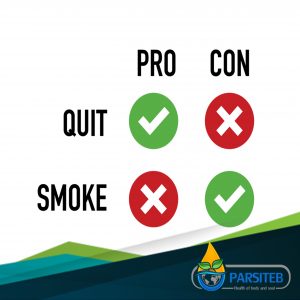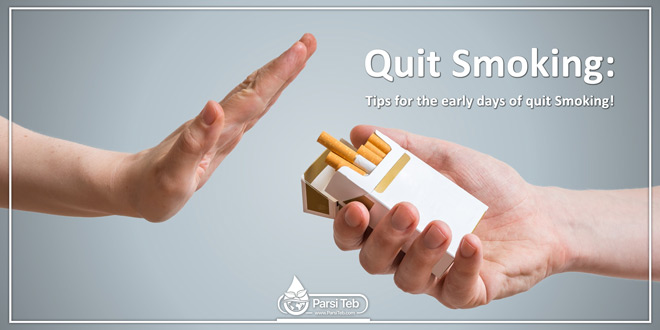Eating and drinking

Drinking and eating small meals can help you reduce your desire to smoke. Choose healthy and low-calorie foods to prevent weight gain. Chewing gum can also help you.
Reward yourself

You can enjoy the benefits of living without cigarettes soon. Write down a list of good changes after you stop smoking. These changes may include self-control, saving money, better oral and body smells, better nutrition and a feeling of being energetic. Reward any of these changes you have seen to motivate yourself.
Brush your teeth

One of the benefits of quitting smoking is that your mouth smells better. Brush your teeth to feel fresh and feel less likely to smoke during the day.
Avoid drinking alcohol

Drinking alcohol is one of the most common things that encourages people to smoke again. Many people are drinking alcohol by smoking, so drinking alcohol may cause your cigarette to turn on again.
Avoid areas suitable for smoking:

When you have a desire to smoke try to not stay alone and go where you cannot turn on your cigarette – for example, cinema, library and …
Think of your reasons for quitting smoking

To avoid smoking, write down a list of your reasons. Take it everywhere (in the kitchen, at work, on the mirror and …). Place the list in places that are easy to see.
Exercise

When you exercise, your stress decreases. Walking is one of the easiest option. You can choose sports according to your interests and play it daily.
Fill in your calendar

During the first few weeks after you decide to quit smoking, plan the programs that you want or need to do. Fill in your time to avoid temptation to smoke.
Choose a sponsor

The best choice is a friend or a family member who was formerly a smoker. Having a good companion and good support can help you in times of difficult cessation. In the face of having a supporter, you should avoid friends who always encourage you to smoke.
Limit Caffeine Consumption

Caffeine often helps some people sleep late, and when they get tired, they also keep them alert. But caffeine often causes exacerbation of tension, fear and anxiety.
Endure your bad temper

Negative emotions such as stress, anger, frustration, and the onset of cigarette smoking are common in the first days. You should be able to control this bad mood and contact an advisor if needed. Try to enjoy your family and friends and fill your time.
 Parsi Teb Physical and Mental Health Journal
Parsi Teb Physical and Mental Health Journal 



